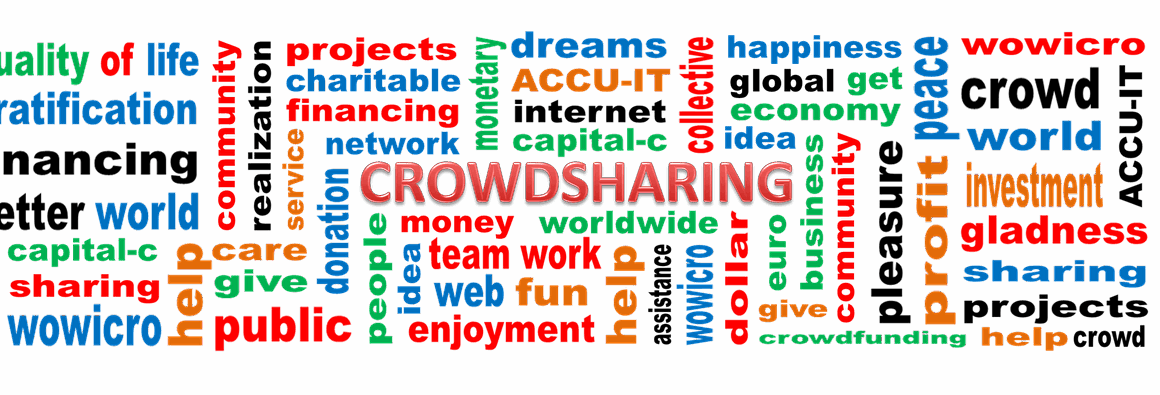Key Differences in Crowdfunding Rules Across African Regions
Crowdfunding is significantly evolving in Africa, bringing together diverse regulations dependent on regional contexts. In Western Africa, countries like Nigeria have established specific frameworks guiding crowdfunding, emphasizing investor protection and market growth. These regulations focus on defining roles and responsibilities for platforms, ensuring transparency in operations. Conversely, East African countries, such as Kenya and Tanzania, are actively pushing for improved regulations that encourage innovation while maintaining oversight. Also, their approaches around equity crowdfunding illustrate an emerging trend of adjusting financial laws to accommodate new financing methods. Meanwhile, in Southern Africa, nations such as South Africa have more developed crowdfunding regulations, allowing varied practices like donor-based and equity crowdfunding. This maturity supports a thriving environment for entrepreneurs to access capital. Regulatory bodies oversee compliance but are increasingly focused on flexibility to adapt to new trends. In Northern Africa, crowdfunding operates under different paradigms, where traditional funding avenues still dominate. Countries here are beginning to acknowledge crowdfunding as a crucial tool for start-ups, leading to calls for more tailored frameworks. Overall, Africa’s crowdfunding landscape exhibits vibrant differences influenced by economic and cultural factors.
Regulations in West Africa
In West Africa, the crowdfunding scene is growing rapidly, with countries like Nigeria spearheading regulatory efforts. The Investment and Securities Act (ISA) governs crowdfunding practices, mandating registration with the Securities and Exchange Commission (SEC). This law guarantees that all crowdfunding platforms adhere to transparency and accountability, offering protections to investors and project initiators alike. Moreover, the SEC is actively engaging with stakeholders to refine these regulations further. Ghana is putting efforts into drafting a regulatory framework as well, seeking to foster innovation in the financial sector while safeguarding investor interests. By clarifying the legal structure around crowdfunding, regulatory bodies aim to boost public confidence and encourage wider participation in digital finance. In addition, community participation in fundraising through social media platforms is gaining momentum. Although informal methods thrive, there’s a growing push for formal regulations to standardize processes and enhance trust among participants. Understanding local regulations is crucial for any entrepreneur wishing to leverage crowdfunding in the region effectively. As initiatives for harmonizing laws continue, the West African crowdfunding ecosystem may become a continental leader in innovation.
East Africa’s Growing Landscape
East African nations exhibit diverse crowdfunding regulations that reflect their distinct economic environments and stages of development. Kenya stands out as a pioneer, with established laws promoting equity crowdfunding under the Capital Markets Authority’s oversight. These regulations underline the provision for individual investments and protect investors. Furthermore, Kenya’s vibrant tech industry drives continuous innovation in crowdfunding platforms, often advertised through social channels to reach potential investors. Tanzania, too, is emerging as a player in this sector, with ventures like crowdfunding for community projects gaining traction. Regulatory efforts are advocating for standards that protect investors while encouraging the growth of new economic ideas. Uganda focuses on crowdfunding platforms that allow micro-investments, fostering a culture of shared funding. This expanding landscape enhances access to capital for start-ups and small enterprises. The landscape in East Africa signals a shift toward acceptance of alternative financing models. By tailoring crowdfunding regulations, these countries aim to integrate technology with traditional funding avenues, bridging the gap between local entrepreneurs and global investors. The progress in this area marks a significant evolution in understanding finance across the region.
Southern Africa’s Robust Framework
Southern Africa’s crowdfunding regulation framework stands among the most sophisticated in Africa, particularly in South Africa. With an established legal environment for both donation-based and equity crowdfunding, robust laws ensure considerable protections for all stakeholders. The Financial Sector Conduct Authority (FSCA) operates as the regulatory body overseeing crowdfunding practices, mostly focusing on enhancing compliance with financial service regulations. This regulation provides an exemplary foundation for entrepreneurship, where platforms can operate with clarity regarding their licensure and responsibilities. However, the landscape is not static. Innovative fintech solutions are challenging existing norms, pushing regulators to adapt rapidly. Notably, South Africa is home to several successful crowdfunding platforms that cater to various sectors, including arts, sports, and startups, showcasing the model’s versatility. On the other hand, countries like Namibia and Botswana are exploring crowdfunding’s potential, facilitating discussions around regulations that spur economic growth. These nations recognize that an adaptable regulatory environment could lead to increased investment opportunities. As the Southern African framework continues to evolve, it serves as a model for others on how to effectively integrate crowdfunding into their economies.
Northern Africa’s Emerging Trends
Northern Africa’s crowdfunding landscape is characterized by its traditional financing methods that dominate, yet there is a growing acceptance of crowdfunding practices. Countries such as Egypt and Morocco are beginning to explore crowdfunding as a viable alternative for startups and small businesses. Egypt has made strides in creating formal regulations aimed at fostering a sustainable crowdfunding ecosystem. The Egyptian Financial Supervisory Authority is incorporating global best practices, emphasizing investor protection and platform regulation. Similarly, Morocco’s recent economic reforms are fostering dialogue around the necessity of recognizing crowdfunding’s potential. Despite these advancements, the region faces challenges, including a need to demystify crowdfunding among potential investors and project initiators. Regulatory clarity will remain essential as these countries emerge towards embracing alternative financing solutions. The dialogue within stakeholder communities is critical in advocating for transparency, which in turn could encourage greater participation. Furthermore, the positive impact of regional collaborations can be seen in initiatives like the Maghreb Startup Network, aiming to provide a platform for sharing insights on successful funding strategies. As these trends continue, Northern Africa might witness an important transformation regarding crowdfunding practices.
Conclusion on Regional Differences
The differences in crowdfunding regulations across Africa highlight the continent’s unique approach to nurturing economic growth through innovative financing solutions. While West Africa emphasizes regulatory frameworks for safety, both East and Southern Africa are leading the charge in developing flexible, forward-thinking regulations. Each region’s distinct values influence their regulatory environments, ensuring that initiatives resonate with local participants’ needs. Northern Africa’s emerging interest showcases the gradual shift towards accepting crowdfunding as a significant tool for entrepreneurs. The ongoing discussions among regulators, stakeholders, and entrepreneurs are crucial in shaping the future of crowdfunding in Africa. As awareness grows, so does the potential for crowdfunding to bridge funding gaps traditionally faced by startups. Additionally, investment in public education around crowdfunding practices can further enhance participation and confidence in these platforms. As the continent exchanges best practices, the hope is to create comprehensive regulations that not only protect investors but also foster an innovative business culture. This will ultimately drive economic growth across all African regions, enabling entrepreneurs to access much-needed funding through more accessible and tailored crowdfunding solutions.
As the crowdfunding landscape across Africa continues to evolve, it poses interesting implications for investors and budding entrepreneurs alike. The diverse regulatory environments offer both challenges and opportunities; thus, navigating this landscape requires a nuanced understanding of local laws. Investors need to stay informed about the frameworks governing their preferred crowdfunding platforms, while entrepreneurs must adapt their approaches to align with these laws. There is a call for cross-regional collaborations to harmonize different regulations, easing the operational burden on crowdfunding platforms. Such collaboration can lead to the establishment of standardized practices which promote increased investor confidence. Many platforms are leveraging technology to introduce innovative solutions that address regulatory challenges, such as automated compliance checks and integrated legal advisories. Thus, embracing technology in regulatory practices may be the key to fostering a vibrant crowdfunding ecosystem across Africa. The potential for crowdfunding to reshape the economic landscape cannot be understated, as it opens new avenues for funding and empowers communities. Therefore, stakeholders must collectively engage in shaping a future where crowdfunding plays a pivotal role in the growth of African economies.
Ultimately, the journey toward a sustainable crowdfunding model for Africa will require active participation from all involved parties. Education and resource-sharing initiatives are essential in fostering a deeper understanding of crowdfunding’s impact on economic development. Regulatory bodies must remain open to feedback from the community and evolve their frameworks based on the realities of the crowdfunding landscape. Continuous dialogue can lead to the formulation of regulations that not only aid in the growth of crowdfunding but also protect all stakeholders involved. As the initiatives grow and diversify across the continent, success stories will pave the way for others to follow. Markets that embrace indigenous solutions will witness a burgeoning entrepreneurial spirit ignited by accessible funding avenues. Moreover, creating a conducive regulatory atmosphere can attract foreign investments and partnerships. Investors from around the globe will increasingly look to Africa’s evolving crowdfunding landscape as a gateway for their capital. This not only diversifies funding sources for African entrepreneurs but reinforces the message that Africa is becoming a key player in the global entrepreneurial ecosystem. To summarize, crowdfunding could become a game-changer in bridging financial gaps and accelerating development the African continent.








